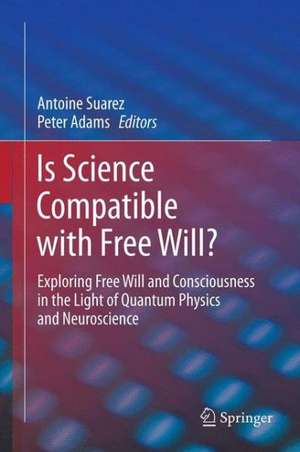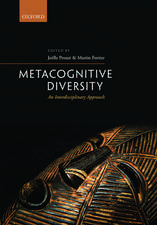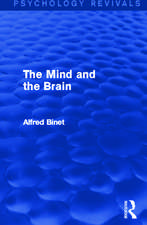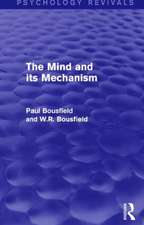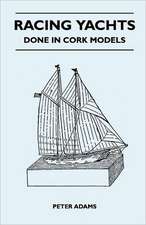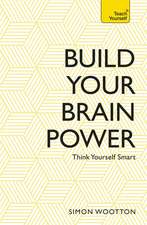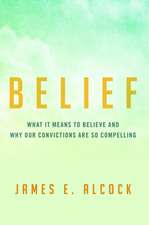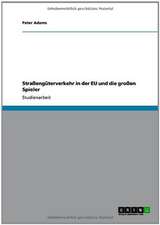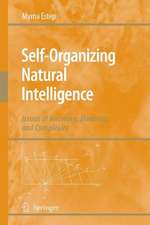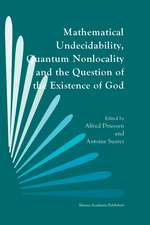Is Science Compatible with Free Will?: Exploring Free Will and Consciousness in the Light of Quantum Physics and Neuroscience
Editat de Antoine Suarez, Peter Adamsen Limba Engleză Hardback – 20 dec 2012
| Toate formatele și edițiile | Preț | Express |
|---|---|---|
| Paperback (1) | 940.54 lei 6-8 săpt. | |
| Springer – 27 ian 2015 | 940.54 lei 6-8 săpt. | |
| Hardback (1) | 942.77 lei 6-8 săpt. | |
| Springer – 20 dec 2012 | 942.77 lei 6-8 săpt. |
Preț: 942.77 lei
Preț vechi: 1149.72 lei
-18% Nou
Puncte Express: 1414
Preț estimativ în valută:
180.40€ • 196.57$ • 152.01£
180.40€ • 196.57$ • 152.01£
Carte tipărită la comandă
Livrare economică 23 aprilie-07 mai
Preluare comenzi: 021 569.72.76
Specificații
ISBN-13: 9781461452119
ISBN-10: 1461452112
Pagini: 328
Ilustrații: XIV, 314 p.
Dimensiuni: 155 x 235 x 22 mm
Greutate: 0.52 kg
Ediția:2013
Editura: Springer
Colecția Springer
Locul publicării:New York, NY, United States
ISBN-10: 1461452112
Pagini: 328
Ilustrații: XIV, 314 p.
Dimensiuni: 155 x 235 x 22 mm
Greutate: 0.52 kg
Ediția:2013
Editura: Springer
Colecția Springer
Locul publicării:New York, NY, United States
Public țintă
ResearchCuprins
1 Introduction Peter Adams and Antoine Suarez.-Part I Quantum Physics and Free Will.-2 True Quantum Randomness Antonio Acı.-3) Are There Quantum Effects Coming from Outside Space–Time? Nonlocality, Free Will and “No Many-Worlds” Nicolas Gisin.-4 Can Free Will Emerge from Determinism in Quantum Theory? Gilles Brassard and Paul Raymond-Robichaud.-5 Free Will and Nonlocality at Detection as Basic Principles of Quantum Physics Antoine Suarez.-6 Are Humans the Only Free Agents in the Universe? Zeeya Merali.-7 The Origin of Freedom in Animal Behaviour Martin Heisenberg.-Part II Neuroscience and Free Will.-8 The Role of Inhibitory Control of Reflex Mechanisms in Voluntary Behavior Flavio Keller and Jana M. Iverson.-9 The Mirror Mechanism as Neurophysiological Basis Action and Intention Understanding Leonardo Fogassi and Giacomo Rizzolatti.-10 On the Quest for Consciousness in Vegetative State Patients Through Electrical Neuroimaging S.L. Gonzalez, S Perrig, and R. Grave de Peralta.-11 On the Irreducibility of Consciousness and Its Relevance to Free Will Giulio Tononi.-12 On Habit Learning in Neuroscience and Free Will Javier Berna´cer and Jose´ Manuel Gime´nez-Amaya.-13 Free Will and Neuroscience: Revisiting Libet’s Studies Alfred R. Mele.-14 Towards Non-physical Realism Jean Staune.-15 Are Economics Laws Compatible with Free Will? Luı´s Cabral.-Part III Attempts to Reconcile Science and Free Will.-16 The Two-Stage Model to the Problem of Free Will:How Behavioral Freedom in Lower Animals Has Evolved to Become Free Will in Humans and Higher Animals Robert O. Doyle.-17 Can a Traditional Libertarian or Incompatibilist Free Will Be Reconciled with Modern Science?Steps Toward a Positive Answer Robert Kane.-18 Exploring Free Will and Consciousness in the Light of Quantum Physics and Neuroscience Peter Adams and Antoine Suarez.-Glossary.
Notă biografică
Antoine Suarez, Center for Quantum Philosophy (Geneva and Zürich) and Social Trends Institute (Barcelona and New York). Dr Suarez' research is focused on quantum experiments demonstrating agency from outside space-time, and bioethical topics. He is co-editor of Mathematical Undecidability, Quantum Nonlocality and the question of the existence of God (Kluwer, 1997) and Is this cell a human being? (Springer, 2011) Peter Adams is a founding member of the Thomas More Institute (London) which has among its aims to promote research and public debate on the interaction of Science with Culture and Politics. He has had a long-standing interest in philosophy of science, and education. He studied Theoretical Physics at Oxford, and then worked for the Science Research Council at the Rutherford Laboratory on Britain’s particle accelerator.
Textul de pe ultima copertă
There is a perceived conflict within the scientific community between the conviction that a human being has free will on one hand, and deterministic physics and neuroscience on the other. When faced with this conflict, two alternative positions are possible: either human freedom is an illusion, or deterministic science is not the last word on the brain and will eventually be superseded by a neuroscience that admits processes not completely determined by the past.
Is Science Compatible with Free Will? investigates whether it is possible to have a science in which there is room for human freedom. The authors present perspectives coming from different disciplines (Quantum physics, Neuroscience, Economics, Philosophy) and range from those focusing on the scientific background, to those highlighting rather more a philosophical analysis. However, all chapters share a common characteristic: they take current scientific observations and data as a basis from which to draw philosophical implications. It is these features that make this volume unique, an exceptional interdisciplinary approach combining scientific strength and philosophical profundity. Is Science Compatible with Free Will? strongly stimulates the debate and contributes to new insights in the mind-brain relationship.
Is Science Compatible with Free Will? investigates whether it is possible to have a science in which there is room for human freedom. The authors present perspectives coming from different disciplines (Quantum physics, Neuroscience, Economics, Philosophy) and range from those focusing on the scientific background, to those highlighting rather more a philosophical analysis. However, all chapters share a common characteristic: they take current scientific observations and data as a basis from which to draw philosophical implications. It is these features that make this volume unique, an exceptional interdisciplinary approach combining scientific strength and philosophical profundity. Is Science Compatible with Free Will? strongly stimulates the debate and contributes to new insights in the mind-brain relationship.
Caracteristici
One of the first books to discuss, at the same time, the implications of quantum physics, Libet’s experiments and the neurophysiological finding of mirror neurons
Uses scientific data as a basis for drawing philosophical implications ?
Contains interdisciplinary contributions from neuroscientists, quantum physicists, and free-will philosophers
Uses scientific data as a basis for drawing philosophical implications ?
Contains interdisciplinary contributions from neuroscientists, quantum physicists, and free-will philosophers
